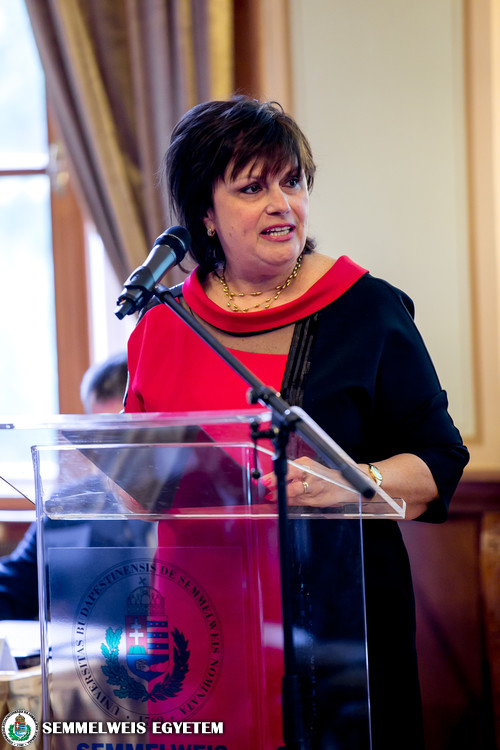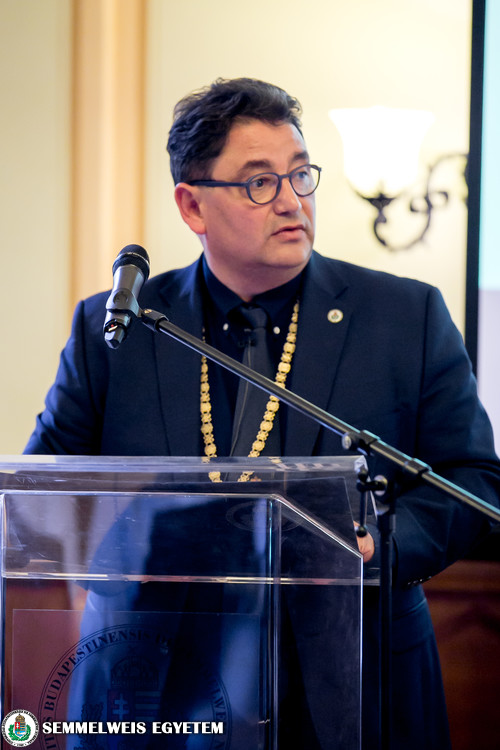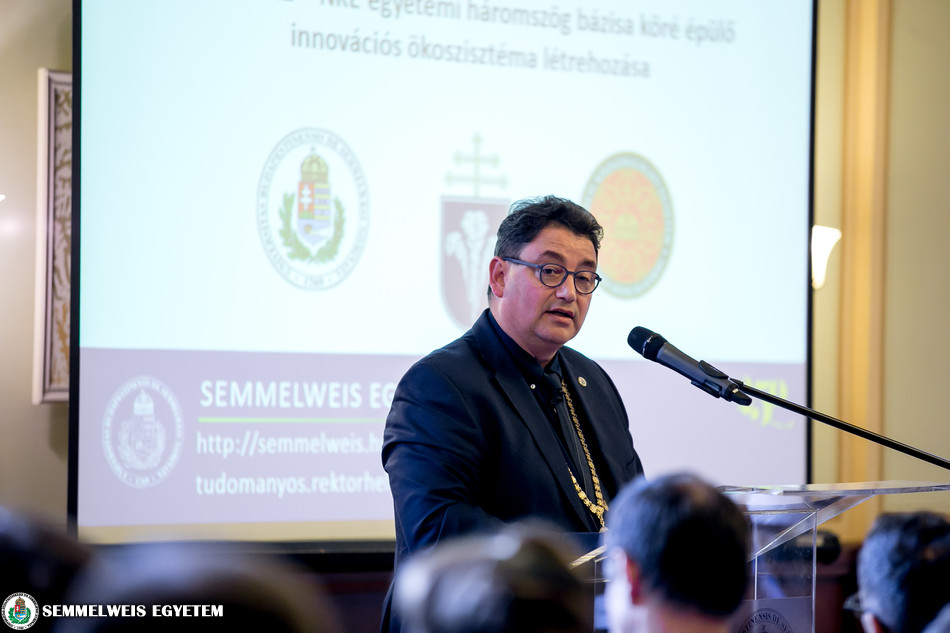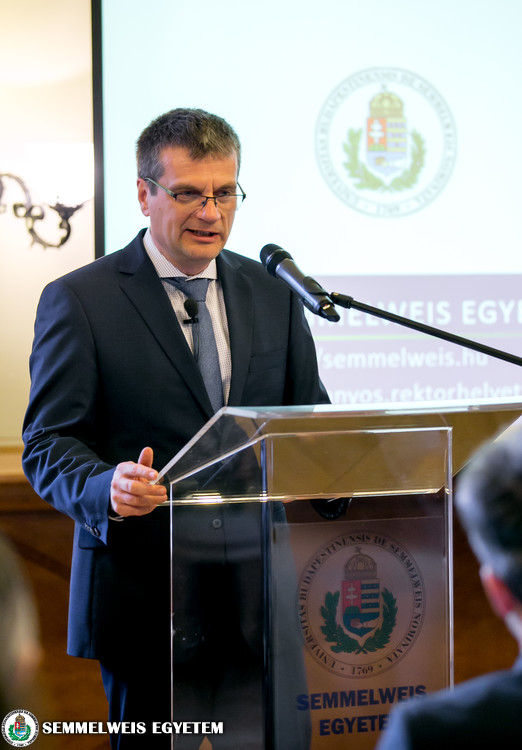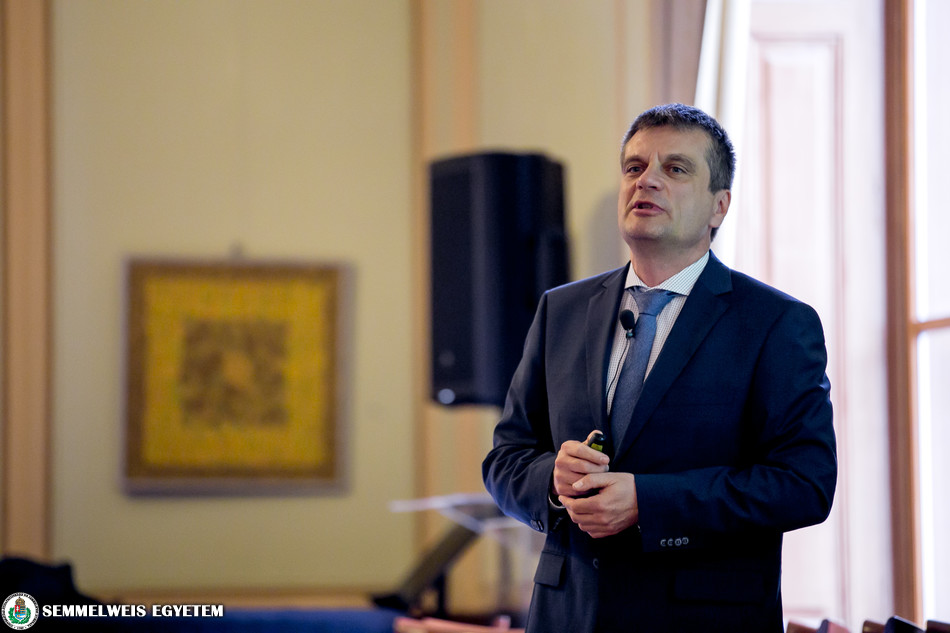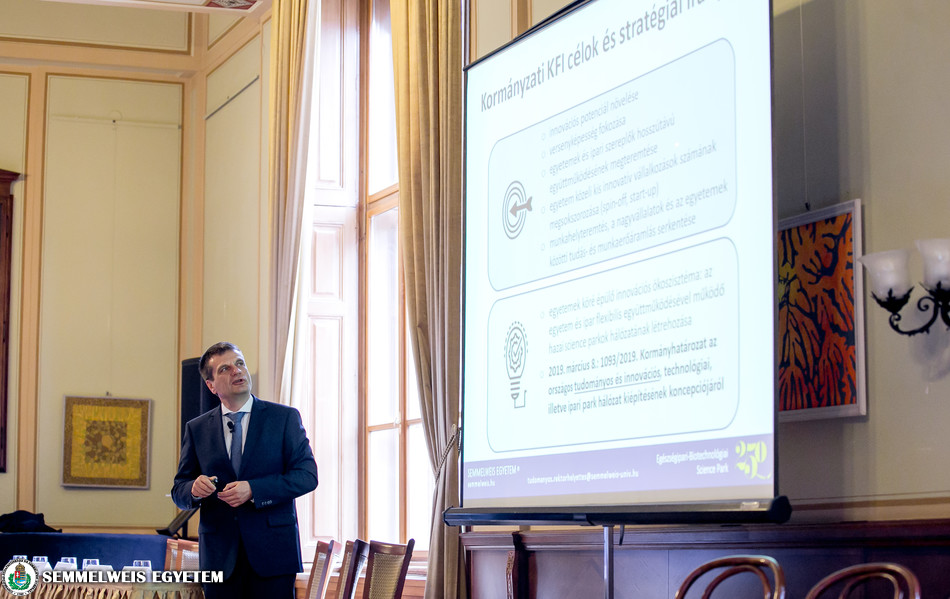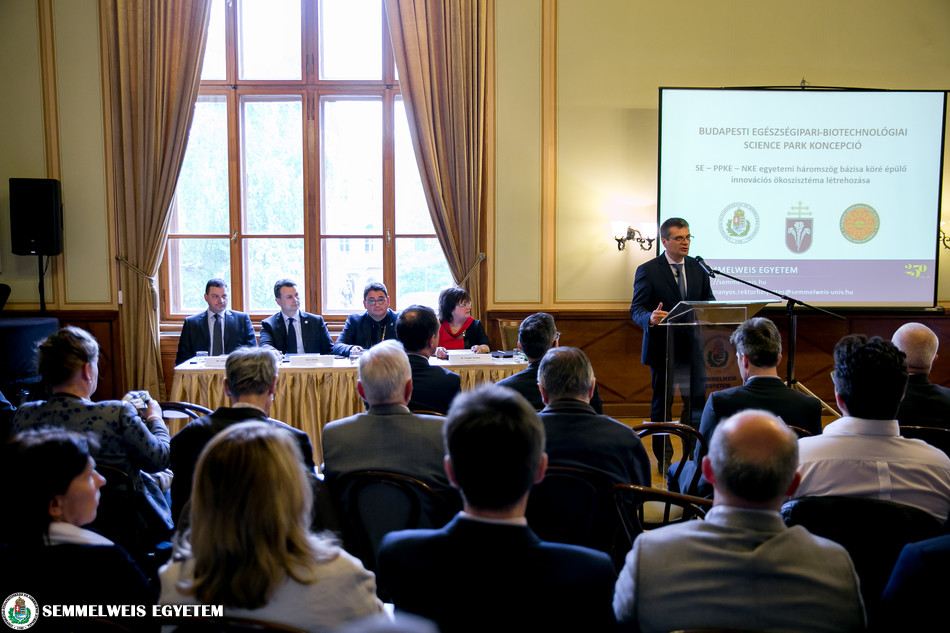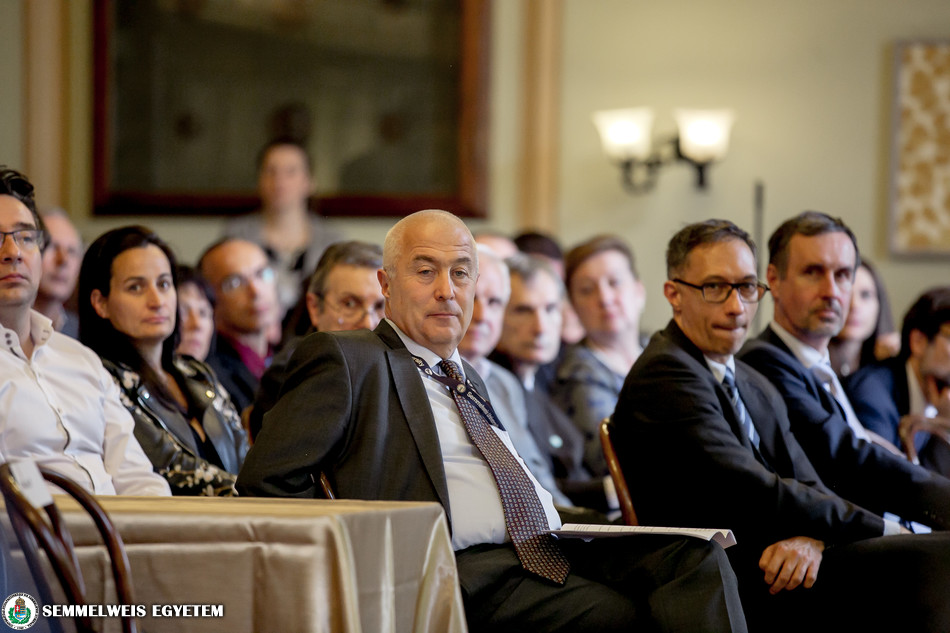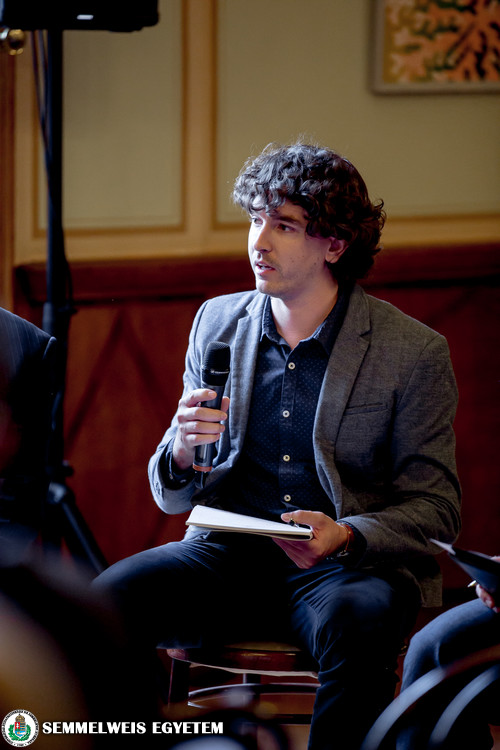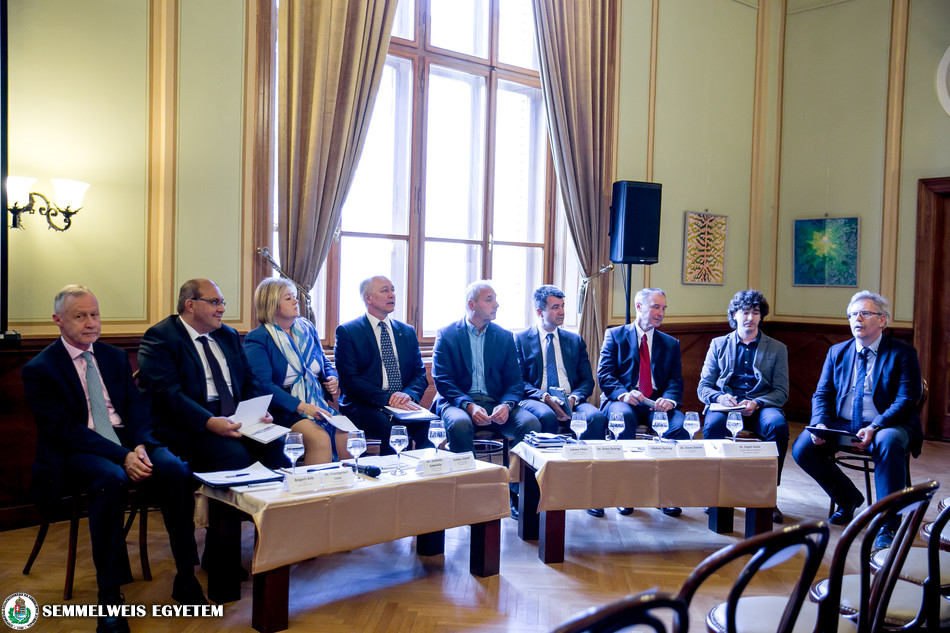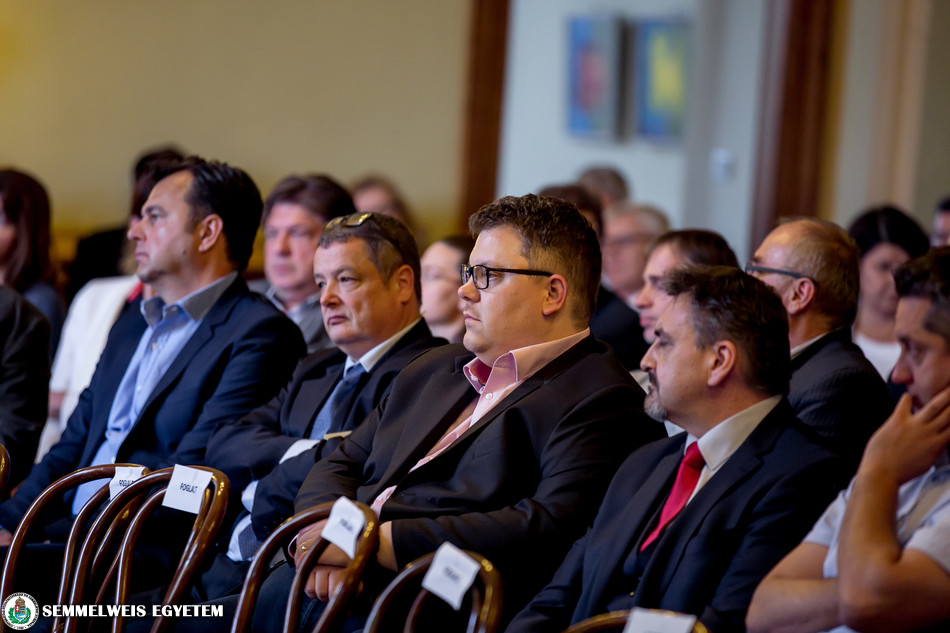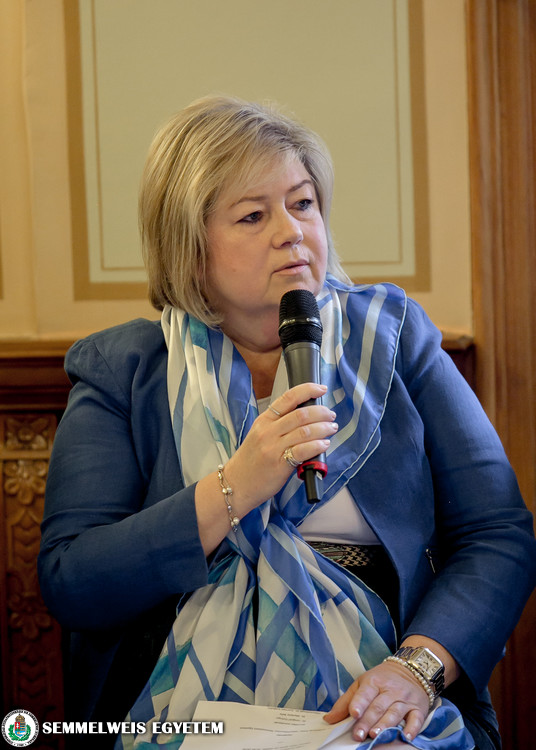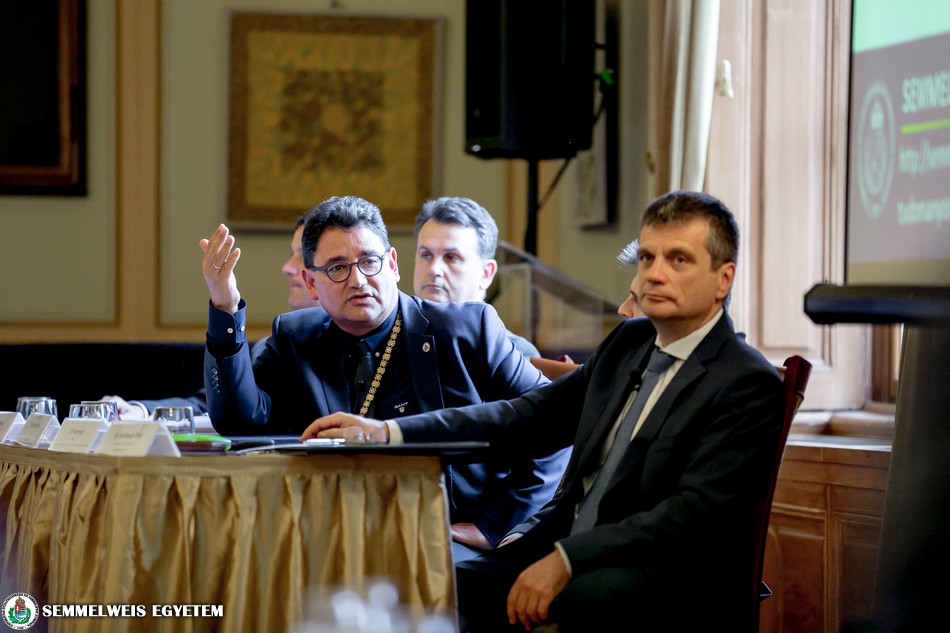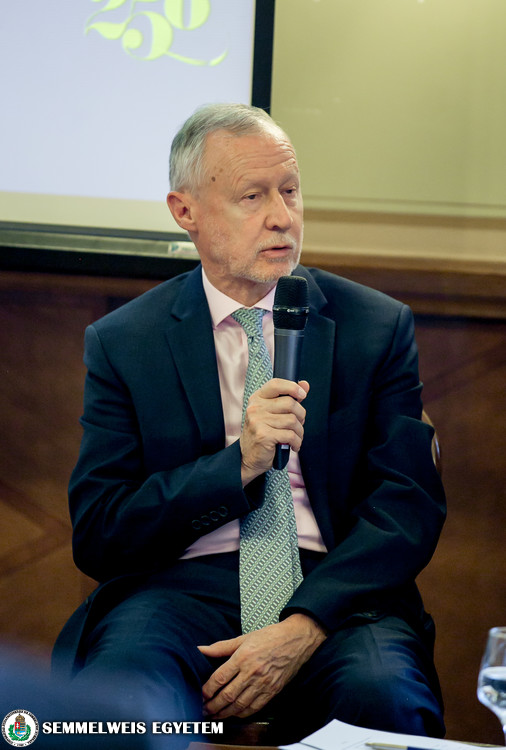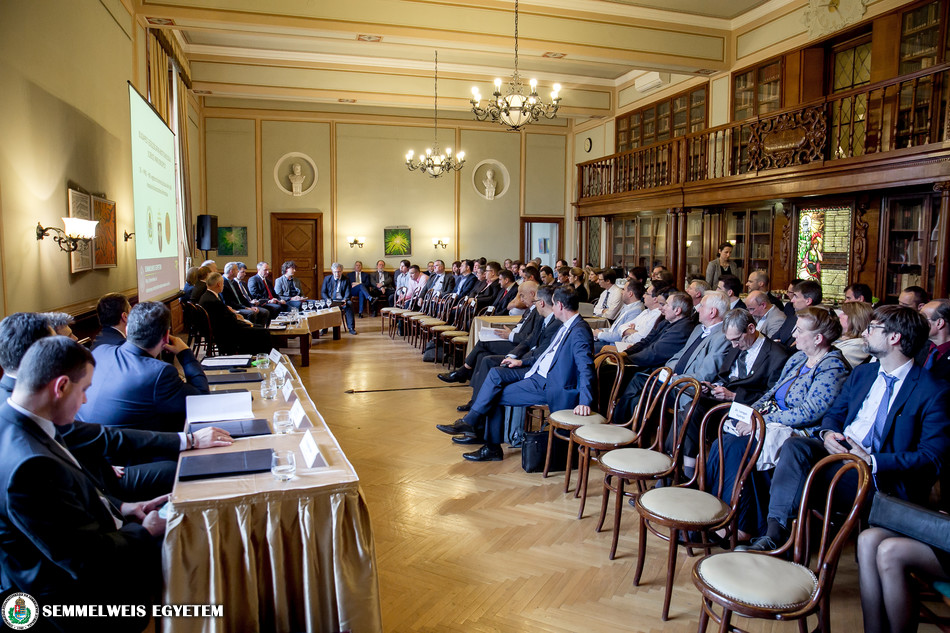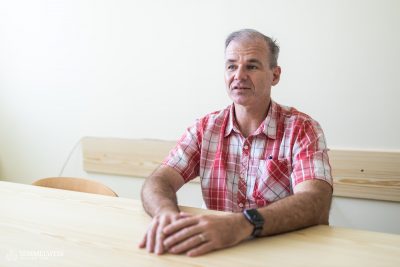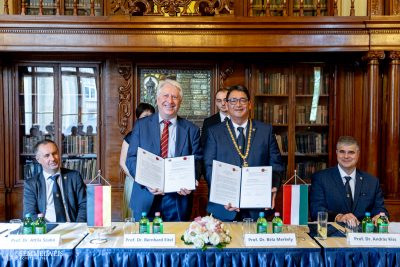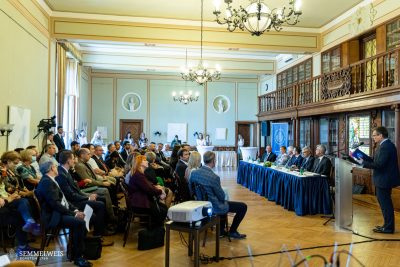An information forum was held to present the Ministry of Innovation and Technology, as well as leading health care- and pharmaceutical companies with the R&D and service plans of the Health Industry-Biotechnology Science Park. Semmelweis University, Pázmány Péter Catholic University, the National University of Public Service and the mayor of Józsefváros signed a declaration of intent on 25th March 2019 on setting up a science park in joint cooperation. The event was closed with a round table discussion on industry needs and the current relationship between the universities and the industry.
The attendants of the information forum held in Semmelweis Salon were greeted by Dr. Péter Ferdinandy, Vice-Rector for Science and Innovation, followed by the speech of Dr. Györgyi Lengyel, ministerial commissioner.
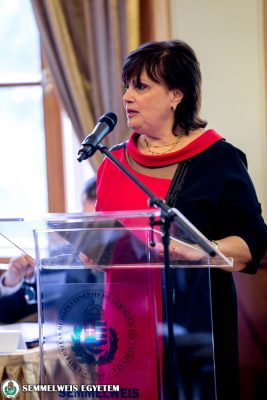 “I hope that the science park soon to be realised based on the initiative of Semmelweis University and the active cooperation of Pázmány Péter Catholic University, the National University of Public Service and leading health care- and pharmaceutical companies will be an innovation true to the legacy of Semmelweis. The future Science Park is a science and innovation facility not only strengthening practical, industry-related research of higher education institutions but promoting internationally successful innovation in cooperation with health care- and pharmaceutical companies.”, Dr. Györgyi Lengyel said after mentioning the government’s efforts to enhance Hungary’s competitiveness by improving the research infrastructure, thus boosting R&D activities.
“I hope that the science park soon to be realised based on the initiative of Semmelweis University and the active cooperation of Pázmány Péter Catholic University, the National University of Public Service and leading health care- and pharmaceutical companies will be an innovation true to the legacy of Semmelweis. The future Science Park is a science and innovation facility not only strengthening practical, industry-related research of higher education institutions but promoting internationally successful innovation in cooperation with health care- and pharmaceutical companies.”, Dr. Györgyi Lengyel said after mentioning the government’s efforts to enhance Hungary’s competitiveness by improving the research infrastructure, thus boosting R&D activities.
Dr. Béla Merkely, Rector of Semmelweis University welcomed the idea of establishing a cooperation between the Hungarian government, three leading universities, and the health care- and pharmaceutical industries to join forces and improve Hungary’s international acclaim and innovative potential.
“This is the dawn of a new era, as the challenges of the 21st century require that university leaders seek convergence with the industry and the needs of the market economy. Science Park can only be successful in case of a strong cooperation, therefore, I propose to start working right now and step on the path leading to an institution that will shape the health care- and pharmaceutical industries, along with education, training and research in medical and health care education in the decades to come.”, the Rector said.
The successful innovation ecosystem will support the establishment of small, but focused businesses based on university knowledge and know-how and will reinforce small, medium-sized and large enterprises by increasing employment and providing an efficient flow of knowledge and workforce.
The opening speeches were followed by the presentation of Science Park by Dr. Péter Ferdinandy. The official programme of Science Park is based on a four-pillar system created along the principles of artificial intelligence: bioimaging, bionics, digital biomarker, and translational biotechnology.
“The mission of Science Park is to protect the value of research activities and data accumulated by the health care industry with the use of scientific and economic technologies. The aim of the three universities is to create a service portfolio together with industry participants that complies with market needs and turns the science park into a business in 5-6 years.”, Dr. Ferdinandy said.
The presentation of Dr. Péter Ferdinandy gave a detailed account of the infrastructural and professional backgrounds of Science Park. New buildings will be built, including an Innovation Centre and a startup incubator to assist new businesses with biotechnological background services. However, already existing infrastructure of the universities will become parts of Science Park, just like the Schöpf-Merei Pharmaceutical Research Centre, under development at the moment, and the Translational Medical Technology Centre, which is currently being designed.
“Apart from using and helping the intellectual property of the universities to reach its full potential, the universities expect an increase in income as a result of market activities, a surge in the number of scientific publications and the improvement of international visibility and ranking. The partnership is beneficial for the industry too, as they have access to medical-biological data, equipment and knowledge, as well as educational and R&D programmes.”, the Vice-Rector said.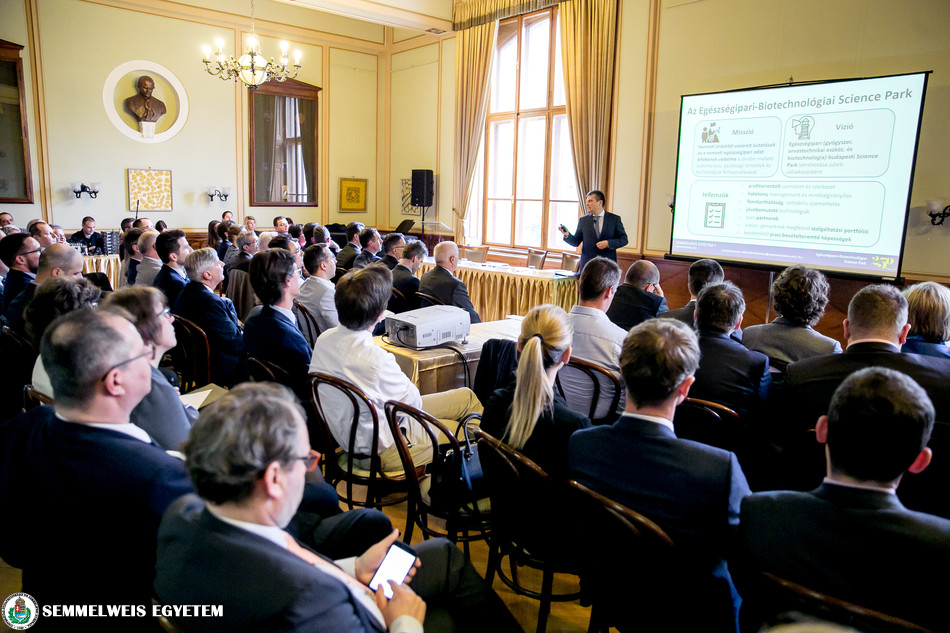
The road map has a tight schedule; with the help of industry observations, the feasibility study of Science Park is to be completed along with the operational and regulatory framework by the end of 2019, the first leg of the construction will start in 2020, the second will follow in 2021 and the science park will swing into full operation in 2022.
The forum was closed by the round table discussion on industry needs and the current relationship between the universities and the industry with the participation of Erik Bogsch, president of Richter Gedeon Nyrt.; Dr. Imre Szentpéteri, research director of Egis Gyógyszergyár Zrt.; Dr. Gabriella Zettwitz, managing director of 77 Elektronika Kft.; József Farkas managing director of Sanatmetal Kft.; Péter Juhász, managing director of Medtronic Hungária Kft.; Dr. György Erőss, director of GE Healthcare; György Hódosi, director of MediPixel Kft. a Samsung partner; Dr. Dániel Veres, medical director of Turbine Kft. The moderator of the discussion was Dr. Gyula Szigeti, Research and Innovation Expert of the Office of the Vice-Rector for Science and Innovation.
Zsófia Haszon-Nagy
Photo: Attila Kovács – Semmelweis University
Translation: Ágnes Raubinek

